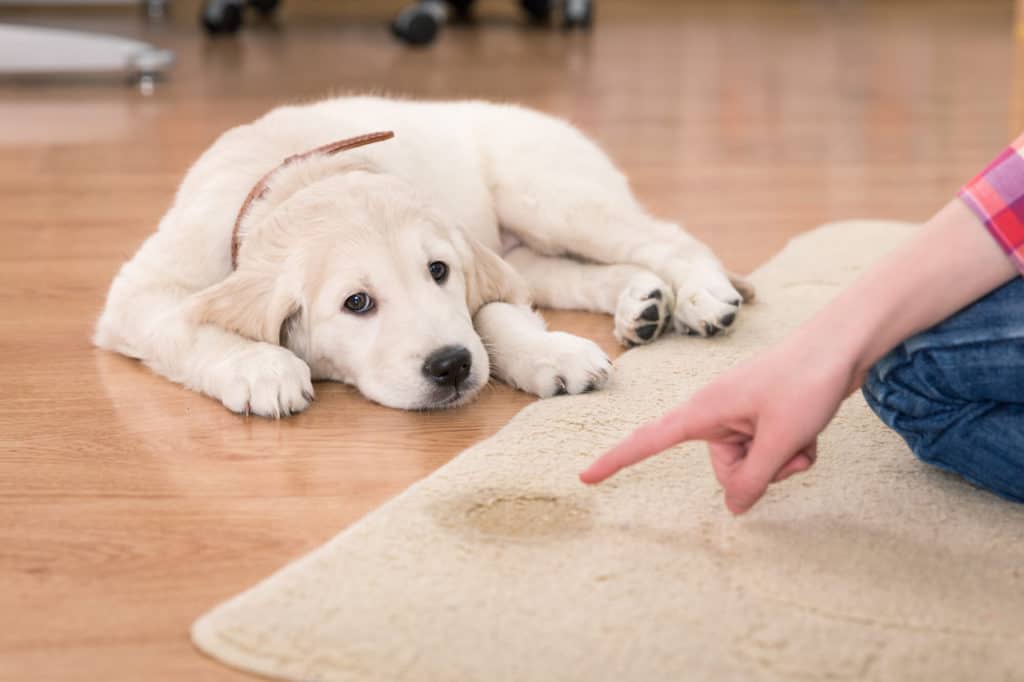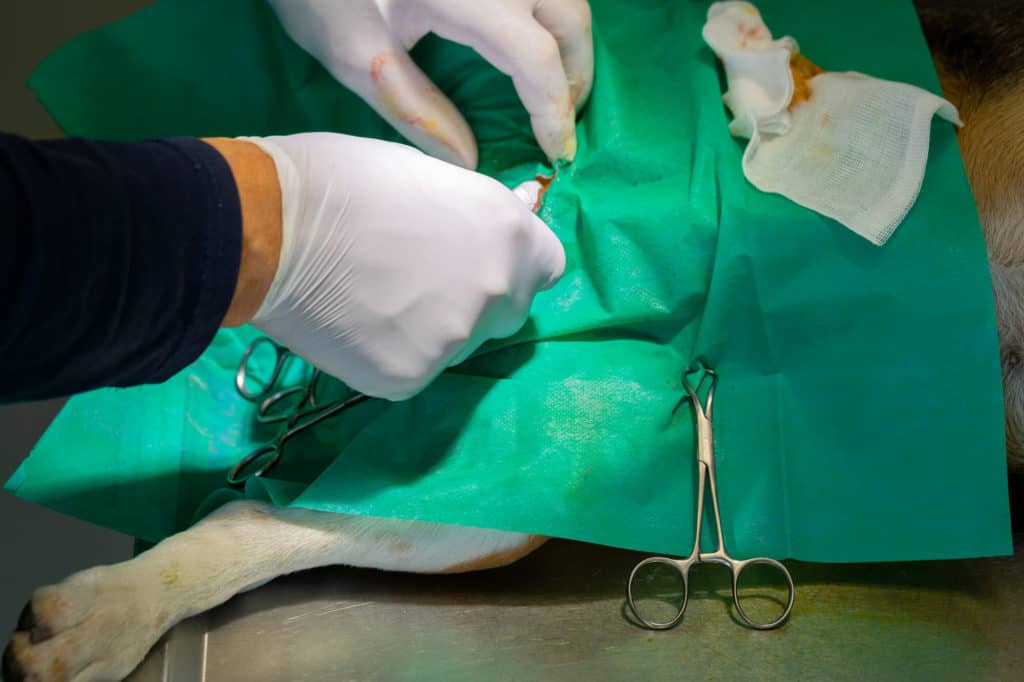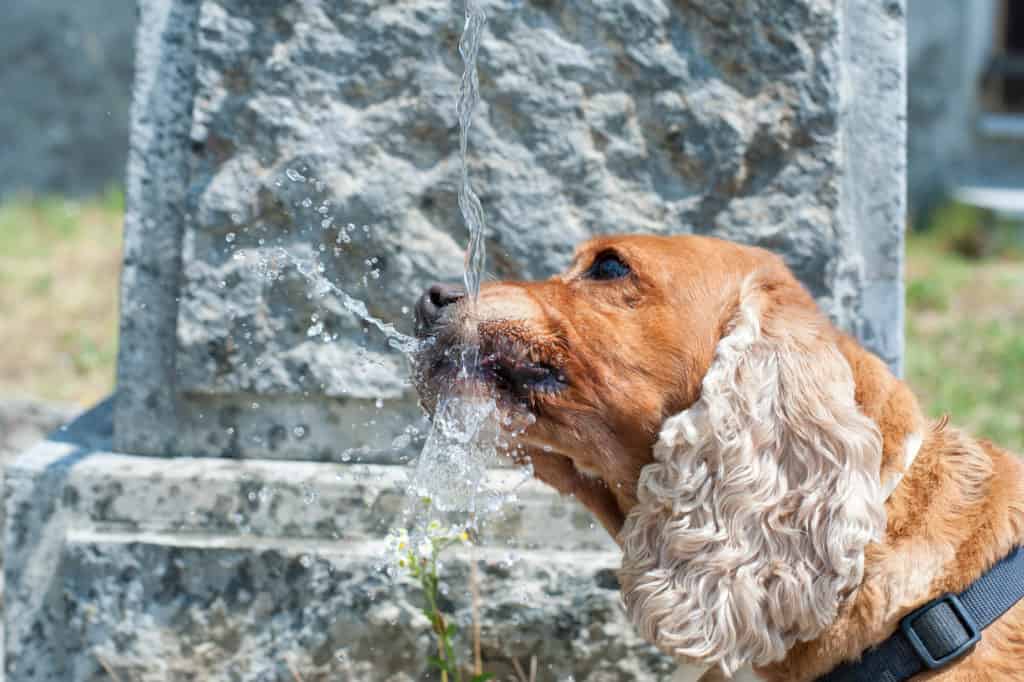For inexperienced pet owners, caring for puppies can be a stressful time.
These furry bundles of joy do the most unexpected things when left alone, like eating their own vomit, snacking on shoes, or peeing in their sleep.
The latter two are common enough, but what about the former? Do puppies pee in their sleep? If so, is it normal?
Like human babies, it's perfectly normal for young pups to pee in their sleep because their bladders are still developing.
It'll happen in the first few weeks of your pup's life until you've housetrained him.
It's a different matter if your puppy is peeing in his sleep even after he's been housetrained or reached the age of six or so months.
This may indicate urinary tract infection, kidney disease, or weakened bladder among others.
Helpful Dog Training Resource:
For help with training your dog, you should take a look at The Online Dog Trainer by Doggy Dan. Doggy Dan is an expert Dog Trainer based in New Zealand. His online resource contains Hundreds of Excellent Dog Training Videos that will take you step-by-step through the process of developing a healthy, happy well-behaved dog.
Why Do Puppies Pee in Their Sleep?
It's normal for very young puppies to accidentally pee themselves while asleep.
They're much like newborn human babies in this regard; they don't have complete control of their bladders just yet, so they end up peeing all over themselves in their most relaxed state.
For this reason, puppies need to be regularly taken outside to pee, both during the day and throughout the night.
It's inconvenient for both you and your pup, but such is the life of a new pup owner!
Generally, puppies don't have full control of their bladders until they reach the age of 4 to 6 months.
This is why experts recommend housetraining between 12 weeks and 16 weeks old.

By this time, puppies would have enough control of their bladder and learn to hold their pee until morning comes.
That said, it's a completely different matter when a puppy pees in his sleep beyond the age of 6 months—especially if he's already been housetrained.
Puppy incontinence can be a sign of a more serious condition, like:
- Urinary Tract Infection (UTI)
- Bladder stones
- Spinal cord disease, such as Intervertebral Disc Disease (IVDD)
- Diabetes
- Ectopic Ureter
- Kidney disease
It could also be caused by spaying or neutering hormonal changes, which can affect the muscle tone and the sphincters in the bladder.
In such cases, bedwetting should subside after 2 to 3 weeks.
5 Common Reasons Why Housetrained Puppies Pee in Their Sleep
Unlike newborn puppies, healthy housetrained puppies don't pee in their sleep. By this point, they should have full control of their bladder.
So if your housetrained puppy is peeing in his sleep, here are some possible reasons why:
1. Urinary Tract Infection (UTI)
One of the most common reasons a housetrained puppy pees in his sleep is UTI.
Like humans, UTIs in dogs often result from bacteria entering the urinary tract through the urethra.
It's a relatively common infection that can be cleared up quickly and easily with the right medication.
UTI causes the bladder to become irritated and swollen, which can result in urine leaking out. It can also cause strong and frequent urges to urinate, which can be painful for puppies.
Alongside incontinence, symptoms associated with UTI include the following:
- Straining to urinate
- Blood in urine
- Dripping urine
- Painful urination (i.e., crying out or whining when peeing)
- Frequent licking of the genitals
- Dark, cloudy, or foul urine
- Increased thirst
- Generalized weakness
Helpful Dog Health Resource:
Note: Our Health is #1 Priority. It should be no different for your dog. But you need to help him. The Ultimate Guide to Dog Health is the answer. This handy guide will help you recognize the symptoms of the health problems above. Get the knowledge to stay ahead of these terrible issues that can rob your lovely dog from vigor and life. Help your friend make it to 14 yrs+ without pain and suffering.
2. Hormonal Changes Caused by Recent Neutering or Spaying

Urine incontinence is a common side effect of neutering a male puppy or spaying a female puppy. It's so common that it has an official name: neuter incontinence or spay incontinence.
Incontinence after surgery is much more common in female pups than in male pups.
In females, rapid hormone changes occur straight after surgery. Their estrogen levels are drastically reduced, which then affects the sphincters' muscle tone.
The same occurs in male pups: after surgery, male pups suffer from weakened sphincters. This results in the spontaneous release of urine, most often in their sleep.
Luckily, neuter and spay incontinence are easily treated by prescription medication.
3. Spinal Cord Disease
Puppies suffering from spinal cord diseases, like Degenerative Myelopathy (DM) or Intervertebral Disc Disease (IVDD), may suffer from sudden incontinence during sleep.
Incontinence—as well as urinary retention and incomplete emptying—are common side effects of spinal injuries and diseases.
The science of it is simple: when a spinal cord is damaged, the signals of a full bladder have no place to travel. Without these signals, pups won't be able to control their bladders, resulting in impaired bladder function.
Spinal cord diseases can severely affect a pup's mobility, which can be deadly if left untreated. Early symptoms of spinal cord diseases include:
- Weight loss
- Difficulty moving
- Changes in gait
- Fever
- Spinal pain, especially when touched
- Loss of balance
- Lameness
- Partial paralysis
4. Kidney Disease
Kidney disease can cause incontinence due to increased thirst.
The more water your puppy drinks throughout the day, the higher the risk of peeing in his sleep.

Later-stage kidney disease also affects the overall function of the organ.
Since kidneys are a part of the urinary tract that makes urine, increased instances of incontinence could signify kidney issues.
Kidney disease is unfortunately common in dogs.
Luckily, progression can be limited with early diagnosis and treatment. If left untreated or treated at a later stage, chronic kidney disease can occur.
Chronic kidney disease is often deadly, and those diagnosed have a survival time of only between 100 to 400 days.
Here are some symptoms to watch out for:
- Drinking more or less water
- Frequent urination
- Decreased appetite
- Sudden weight loss
- Blood in urine
- Vomiting
- Diarrhea
- Dental diseases like foul breath, mouth ulcers, and pale gums
5. Ectopic Ureter
Ectopic ureter is a birth defect in which a dog's ureters aren't connected in the anatomical position in the bladder. It can affect both or only one of the bladders.
Ureters are thin tubes that carry urine from the kidney to the bladder. Improperly connected ureters can cause a ton of bodily issues, including urine incontinence.
Other symptoms of ectopic ureter include:
- Frequent urination
- Bloody urine
- Genital licking
- UTI
- Swelling of the abdomen

Paul has been creating content for the dog niche for many years. The information he shares comes his first hand experience growing up in dog lovers household and then owning multiple dog breeds of his own as an adult. Paul enjoys doing the hard research to collect, analyze and present our dogtemperament.com readers with the best answers to their questions.